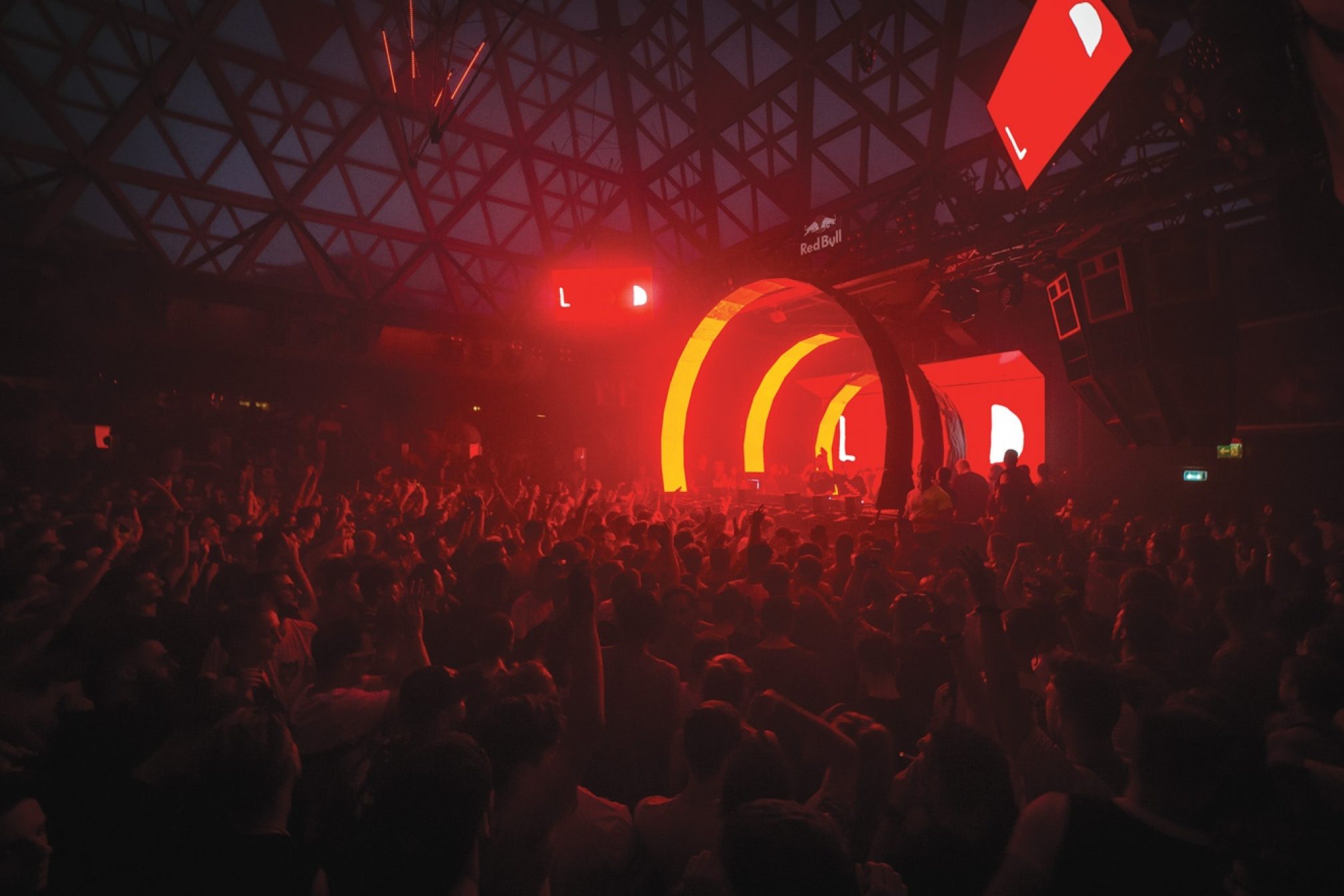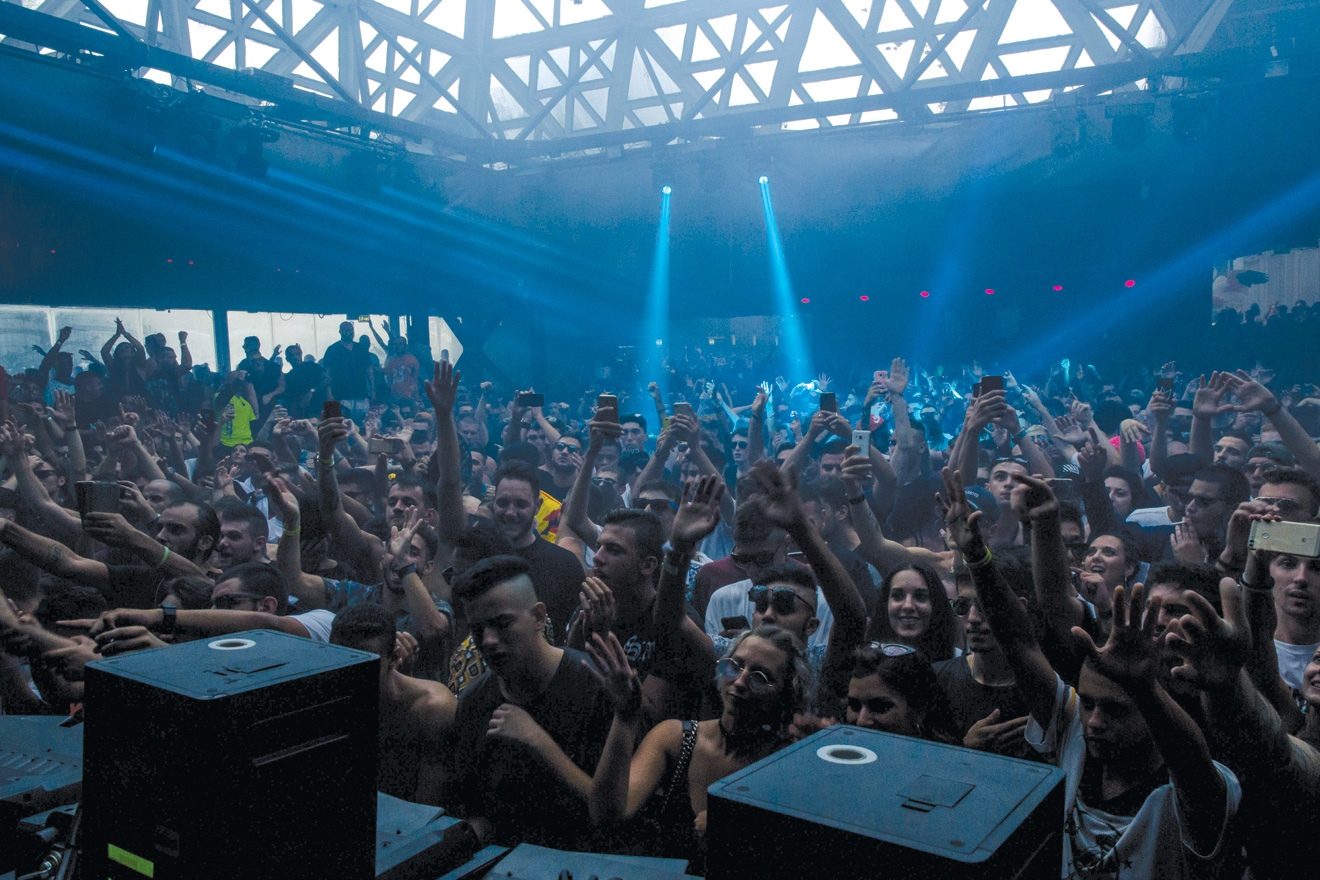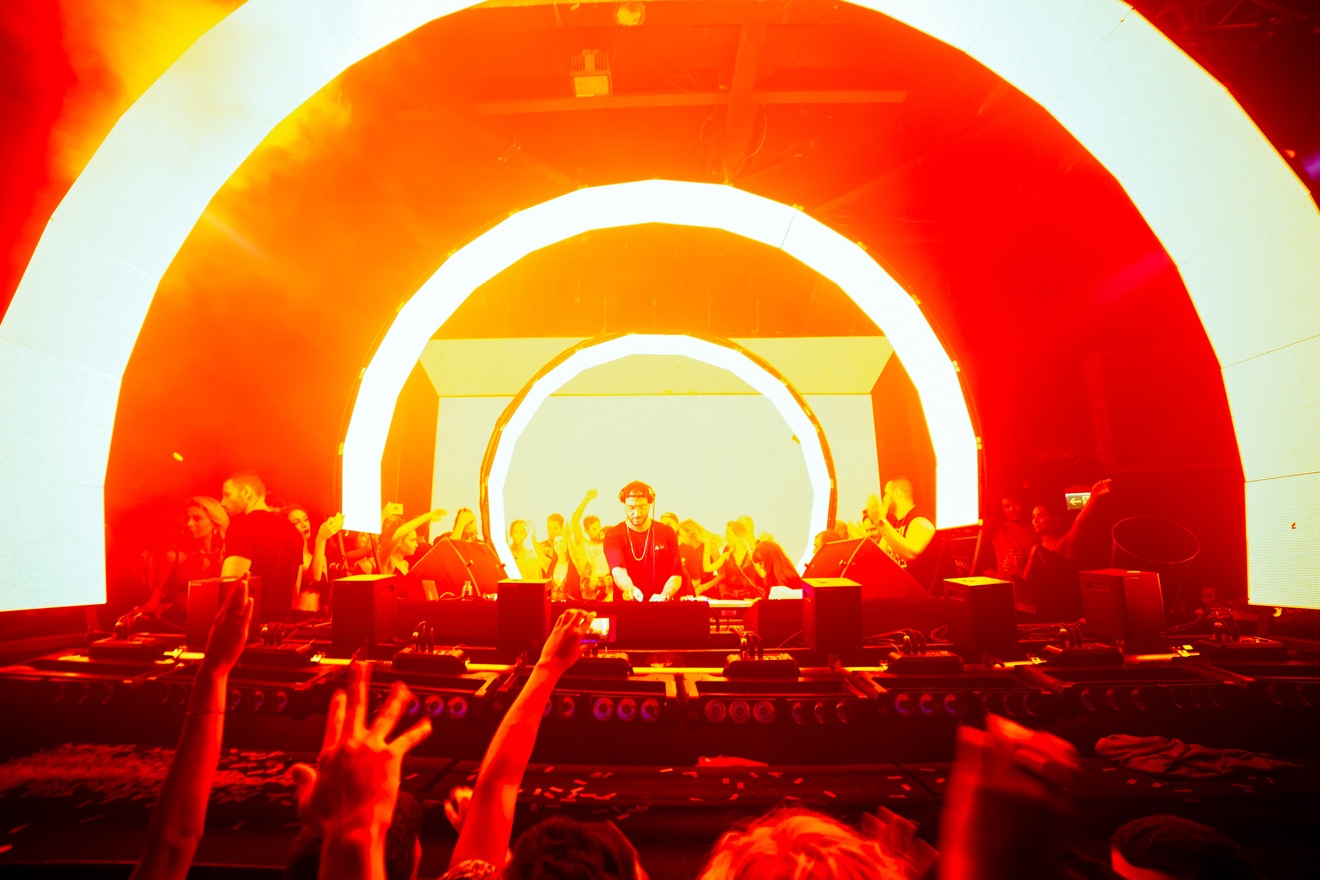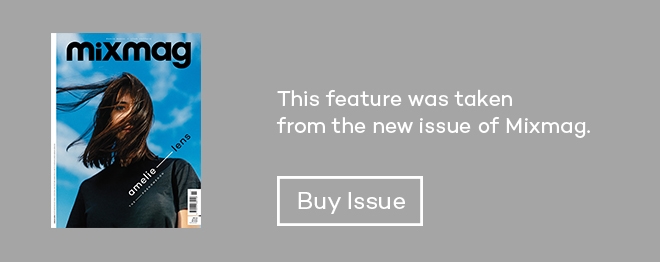 Scene reports
Scene reports
Rimini's Cocoricò turns 30 as one of Italy's most notorious clubs
We got wet, soaking wet, at the venue's celebratory 'festival'
“Tonight will be hell,” says Mario Cecchini, Operations Manager at Cocoricò, one of Italy’s most notorious clubs. Prior to Mixmag’s arrival at the club, which is up in the hills above Riccione, our driver Edoardo also warned us, “You will die tonight; for sure you will die!”. Should we be worried?
This year the legendary venue is celebrating its 30th season with a weekly series of events bringing in some of the world’s best-known selectors. Mixmag is joining them at the beginning of a three-day ‘festival’, during which time the iconic pyramid will welcome in excess of 4,000 people per night. In essence, this means the space will be overrun with wild Italians and international visitors pumped full of adrenaline, sending temperatures soaring towards boiling point. Seriously, if there’s one thing that Cocoricò is renowned for, beyond the excellent music, killer soundsystem and that seminal pyramid design, it’s the sweatbox atmosphere.
Thirty years ago this was the place to see the world’s best DJs of the time – and to be seen. A trailblazer of sorts, Cocoricò’s owners really pushed the boundaries of club design and production. In an ongoing experiment in design, every few months the interior was stripped out and replaced with a new set-up even more wacky and outrageous than the last; a ‘Barbie house’ was installed once, complete with kitchen, lounge, bedrooms and bathroom, and performers would be holed up in it all night, pretending to cook in the kitchen or read the paper on the loo. Cocoricò became a hangout for a wide range of nocturnal freaks. Local DJs like the late DJ Ricci, and Cirillo, who was also instrumental in Circoloco’s conception, were residents, and cultivated the club’s reputation for quality music, playing a range of early 90s hardcore and techno. On the house side of things, DJ Ralf and Claudio di Rocco were also intrinsic to the club’s evolution.
“It really was the centre of the world for many of us here in Italy,” Mario tells us. He moved to Riccione from his home town of Rome when he was in his late teens, becoming a devotee of Cocoricò and eventually taking charge of one of its most important party brands, Memorabilia. The nostalgic night would bring in old hands like CJ Bolland and Emanuel Top, keeping the 90s vibe well and truly alive. “Every time you went it was an experience – you’d go home with so many memories. In those early days it was a unique place and people would travel from all over Italy every Saturday to come and experience the magic,” he says.
On the first of three huge nights at the club this week, Loco Dice and The Martinez Brothers are headlining, with Cirillo igniting the furnace. By 1am the dancefloor is rammed full of bodies and we’re already regretting ignoring Edoardo’s advice about taking a pair of shorts. The air is extremely humid, our jeans are sticking to our legs and we’ve got at least another six hours of raving left to go. On the dancefloor it’s bedlam:the locals are an expressive crowd, roaring with delight at every bass drop, chanting in unison (“Heyyyy, hooooo”) and really letting loose from the get-go. Cirillo responds by carefully pushing the BPMs up, moving from sub-100 all the way up to 125. Like throwing hot water on the rocks in a sauna, his warm-up is pushing that mercury up towards 100 degrees centigrade. It’s a masterclass from the man who actually gave DC10’s most infamous party its name.
“There are two distinct eras for Cocoricò: the time when there was no internet, no photos, no social media... when I first stepped in to Cocoricò, you had the gays, the transsexuals, the fashion crowd – it was the best club I had ever seen in my life,” says owner Fabrizio de Meis, a 44-year-old who, like Mario, grew up with the club and became part of the family by devoting his life to it. “When I bought the club ten years ago, the world had totally changed. Then the internet arrived, DJs became the main focus of the crowd and I changed the whole club to adapt to these [developments]. In the first 20 years it was a temple for techno music; today we have an EDM night to cater for people who like that style – it’s now a ‘temple for music’.”


Nowadays superstars like Calvin Harris and David Guetta are booked for exclusive sets; Luciano, Marco Carola, Nina Kraviz, Villalobos and many more of the world’s titans fly in every year to experience the intimidating magic of Cocoricò. Even Cirillo, who has been playing at the club for three decades, still feels pangs of anxiety before he spins there. “This is the adventure. The first two hours I come here I’m totally sick and nervous. You want to come and speak to me, it’s impossible, I’ll tell you ‘Fuck off!’” he laughs.
By the end of his set the dancefloor is a heaving mass of bodies, condensation is dripping from the ceiling – and that’s when Loco Dice steps up. His first track is 90s classic ‘Turkish Bazaar’ by Emmanuel Top. Over the next four hours he rips through a typically taut set comprised of music from his own Desolat label and similar outfits, with some older gems in the mix, too; it’s tough, groovy and relentless, the perfect sound to carry the Cocoricò faithful through to the break of dawn. When the sun starts to rise over the nearby Adriatic, the club undergoes a complete transformation: daylight filters through the windows and warm rays reinvigorate the dancefloor.
It hasn’t always been plain sailing for Cocoricò. In July 2015, 16-year-old Lamberto Lucaccioni died after falling ill at the club. He’d taken ecstasy before entering the venue, and died despite the best efforts of staff before he was rushed to hospital. Just like at Fabric in London, the condemnation of the Italian media and authorities was severe, and led to an extended closure. “It was the worst time of my life. We have over 100 staff members here, and a lot of them have families, so all of those people were out of work. I didn’t even want to come to the club, it was heartbreaking,” Fabrizio tells us. “I saw the boy being carried past me; five minutes later he was dead. We were closed for seven months but it felt like ten years – it felt like forever.”
On top of that, the recession played a role in the recent decline in club culture, and commercial music has risen in popularity, trap and reggaeton now among the most popular genres in Italy. Faced with such difficulties, Mario remains upbeat: “It’s like a wheel, you know: maybe at the moment things aren’t too great but in a few years it will come back again. We have to resist and do what we always have done, we have to keep on because that will keep the wheel turning,” he says. “At Cocoricò we always maintain the best quality and that is what keeps the club alive.”
“I’m proud that we have reached thirty years because it’s rare for any club in the world to make it this far. I am happy for all of the Cocoricò family that we are able to celebrate this anniversary together,” Fabrizio adds.
As Mixmag leaves the club drenched from top to toe, ears ringing and having lost at least half our body weight in water, we’re not alone in wishing Cocoricò another 30 years. And that we’d worn a pair of shorts.



